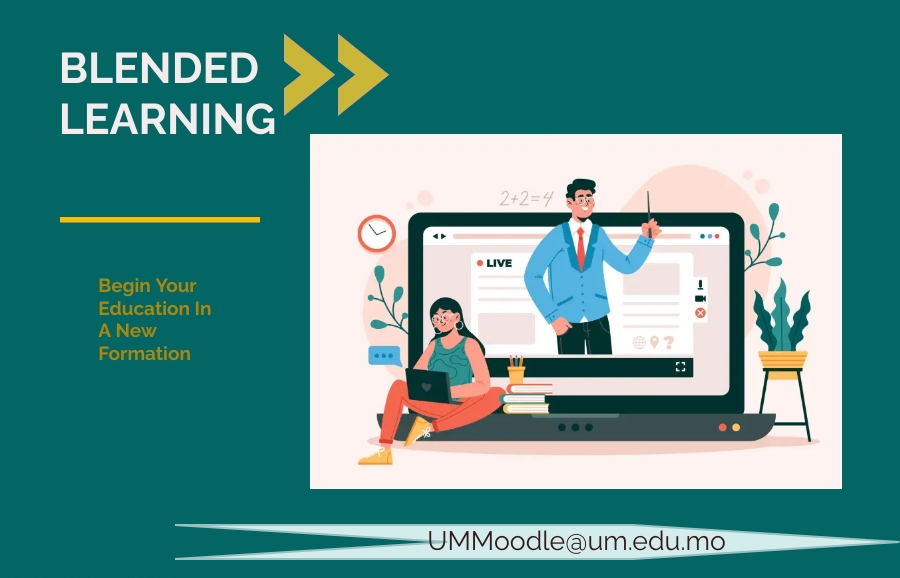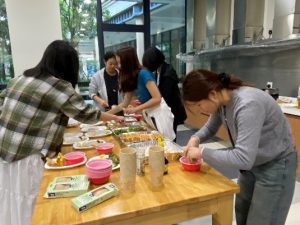- Teacher: Alice, Hong Ieng Wai
- Teacher: Peggy, Lau Pui Kei
- Teacher: Manuel, Manuel Antonio Noronha

- Teacher: Alice, Hong Ieng Wai
- Teacher: Peggy, Lau Pui Kei
- Teacher: Manuel, Manuel Antonio Noronha

- Teacher: Alice, Hong Ieng Wai
- Teacher: Peggy, Lau Pui Kei
- Teacher: Manuel, Manuel Antonio Noronha
- Teacher: Alice, Hong Ieng Wai
- Teacher: Peggy, Lau Pui Kei
- Teacher: Manuel, Manuel Antonio Noronha
- Teacher: Alice, Hong Ieng Wai
- Teacher: Peggy, Lau Pui Kei
- Teacher: Manuel, Manuel Antonio Noronha
This course is designed for all freshmen at UM.
- Teacher: Alice, Hong Ieng Wai
What this course aims to achieve:
- You will learn vital English words, expressions and idioms, and how to use them in real life.
- You will learn basic English grammar added with actual English-speaking practice.
- You will learn to think in English, and to speak fluently.
- You will learn to read in English, and to spell words intuitively
- You will learn to understand movies and TV shows in English.
After the course, you can travel the world freely, without a language barrier
You may start preparing for English language tests like First Certificate Cambridge (FCE)
Course content
| Listening Resource 1 English Listening Lesson Library Online |
Language Learning Resource BBC English Course Level 1 |
Assessment Pechakucha or Karaoke |
|---|---|---|
| Listening Resource 2 Randall's Cyber Listening Lab |
Reading Resource Breaking News English |
|

- Teacher: Manuel, Manuel Antonio Noronha
- Teacher: Alice, Hong Ieng Wai
- Teacher: Peggy, Lau Pui Kei
- Teacher: Manuel, Manuel Antonio Noronha
This two-semester course consists of 6 class meetings (face-to-face and/or online), and is taught at the colleges preparing freshmen in adjusting to, and benefiting from 'whole-person' education at UM. A set of basic study skills and active-learner attitudes will be introduced to students through experiential learning in RC educational activities, learning experiences at UM at large, and the course required e-portfolio practice, students will learn to appreciate selected competencies prescribed as goals of the “community and peer education” of UM. They will also learn how to relate these competencies to their academic performance as well as future career development.
Course Intended Learning Outcomes (ILOs)
Upon completion of the course, students will be able to:
1. explain the difference between studying at high school and university (purpose and meaning of University education and personal goals and aspirations and community commitment);
2. explain the difference between UM residential college and a student hostel;
3. demonstrate basic study skills;
4. demonstrate active-learner attitudes expected of a university student;
5. articulate selected competencies prescribed as goals of the “community and peer education” at UM and how these competencies are related to the student’s academic performance and future career development;
6. reflect on experiential learning at RC and in university at large through RC e-portfolio.
Instructional approach:
lectures, workshops, discussions, flipped classroom;
active learning that allows students to talk, listen, read, write, and reflect;
interactive learning that encourages students to form small groups to work together for the achievement of a common goal;
experiential learning that emphasizes the process of learning in the participation of designated activities;
independent learning that fosters the development of individual student initiative, self-reliance, and self-improvement.

- Teacher: yc27719, LIU GAOLE
- Teacher: Manuel, Manuel Antonio Noronha